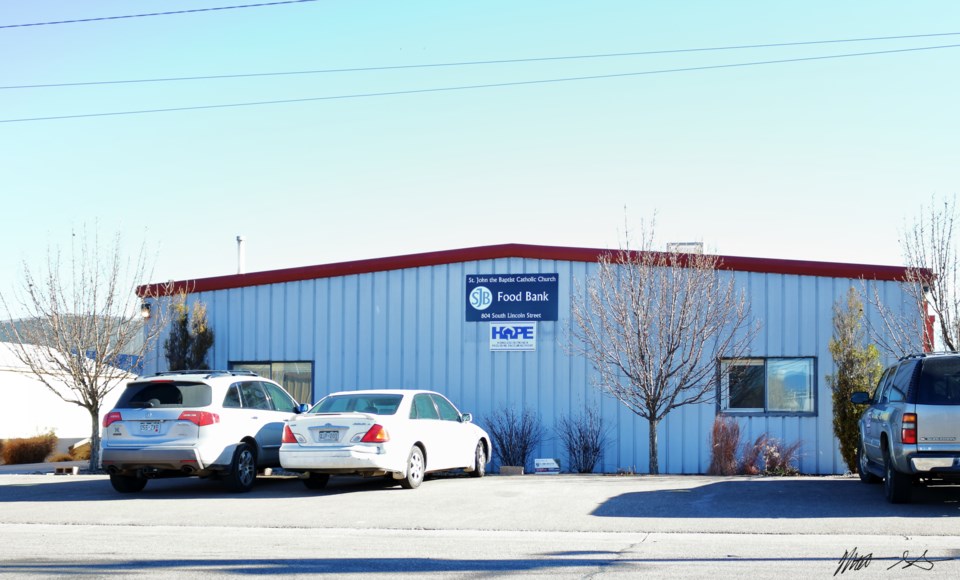HOPE, or Homeless Outreach Providing Encouragement, serves those in Longmont who are experiencing homelessness. In Nov. the nonprofit received $300,000 from Boulder County to offset some of the rising costs the organization has encountered due to an increase in homelessness, said Alice Sueltenfuss, executive director of HOPE.
“HOPE is very thankful to the Boulder County Commissioners with housing and rental costs and the number of individuals becoming homeless because of those, homelessness is on the increase in Boulder County and across the United States,” Sueltenfuss said.
Over the past year, the Longmont sheltering service has seen an increase in people 65 years old and older seeking services. According to Sueltenfuss, many of the people who have walked into the nonprofit’s doors have never experienced homelessness before.
So far in 2023, HOPE has provided shelter for over 14,000 people and provided nearly 35,000 meals to people in need.
However, older people are not the only ones having this experience. Sueltenfuss said that shelters in northern Colorado don’t typically reach capacity levels until the colder months of January or February. During the Nov. 25 weekend, Sueltenfuss said the HOPE shelters were at capacity even though the temperatures were still above 0F.
“We ran out of mats, we had to collect blankets from our outreach center to bring to our shelter … We ran out of food and had to scurry around to feed people. This rarely happens to us but the fact that it is happening at the end of November rather than in February is very eye-opening,” Sueltenfuss said.
Despite the growing concern of an increasing homeless population, HOPE is very proud that it has aided 69 people in finding permanent housing, 19 of whom went from living on the street to a permanent home, Sueltenfuss said.
Helping people find permanent housing is a difficult task, Sueltenfuss said. It can often mean first helping them get vital documents such as a birth certificate or a social security card. After that, HOPE sometimes helps the person pay for the deposit which can range from $400 to $1,200, she said. In a year, it is easy for HOPE to spend $20,000 to $30,000 getting people into housing.
Even with HOPE’s help, the people who are housed require a housing voucher to afford rent, Sueltenfuss said.
Sueltenfuss shared that four years ago her daughter found an apartment in Texas that cost $540 a month. At the moment she heard her daughter’s rent, Sueltenfuss was standing in a large room at Journey Church that was filled with people experiencing homelessness. She looked around the room and realized that if there were apartments in Boulder County with a $540 rent, 90% of the people in that room would not be there.
“It’s truly an affordability and availability problem,” Sueltenfuss said. “A year ago, we were able to go in search for that smaller apartment complex that was more affordable and under $1,000 a month. This year, in 2023, that is nonexistent.”
Sueltenfuss said that the only way to find housing for people who work minimum wage or moderate wage jobs is to go to housing voucher meetings and put people on the list. She and others helping people find affordable places to live attend monthly meetings and hope that one of the people on their list is next to get a voucher, she said.
“We used to not operate as a county this way,” she said. “It’s very hard to find market-rate housing for anybody.”
Throughout a person’s journey from homelessness to being housed, caseworkers guide the way. These people do more than find an apartment, gather the necessary documents and advocate for vouchers. Sueltenfuss said often caseworkers and outreach specialists have to provide encouragement and even convince people that they are worthy of having a home. They sometimes have to reteach people who have experienced homelessness how to form a new community and to feel as though they belong in a permanent home.
It all takes lots of time and patience, Sueltenfuss said.
The funds allocated from the county will first go to increasing staff wages so they are making a living wage, Sueltenfuss said. The remaining funds will go toward running the shelters which have increased due to inflation, space rental fees and insurance increases. She also will add more money into the budget to aid in the costs of housing deposits and application fees.



